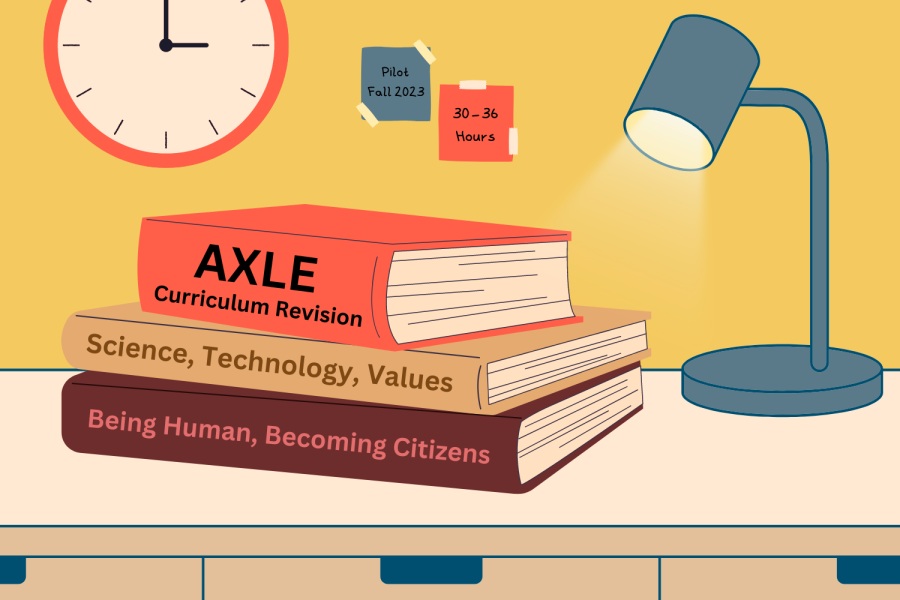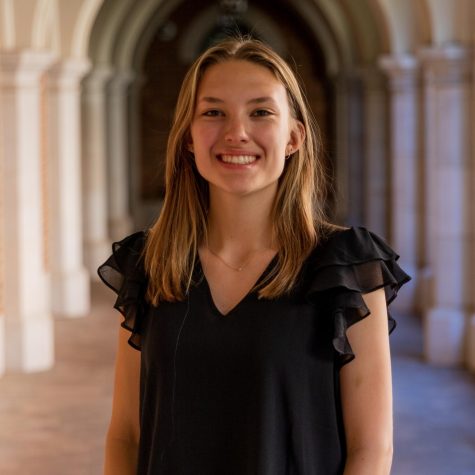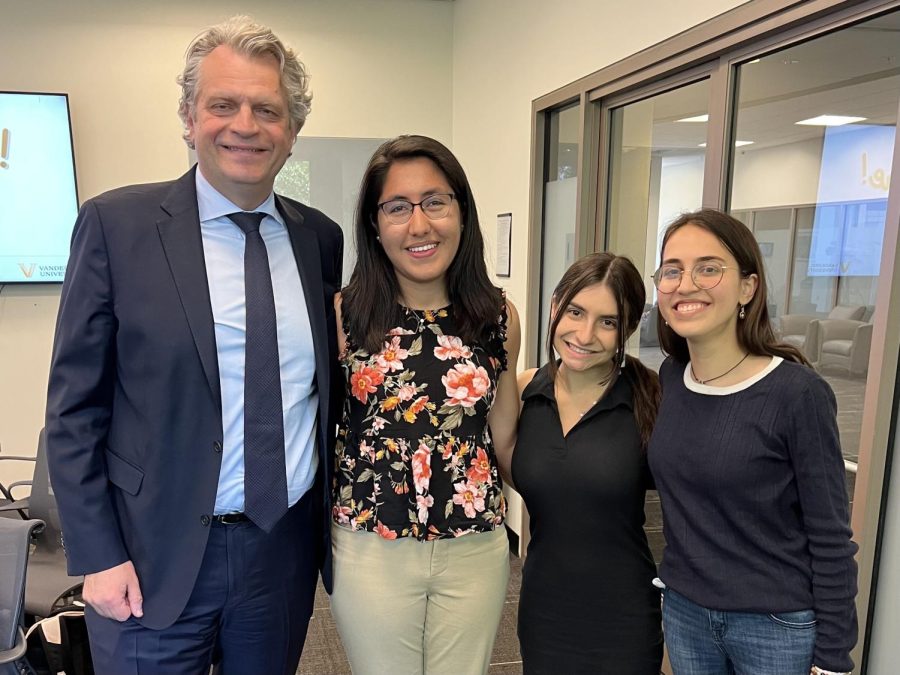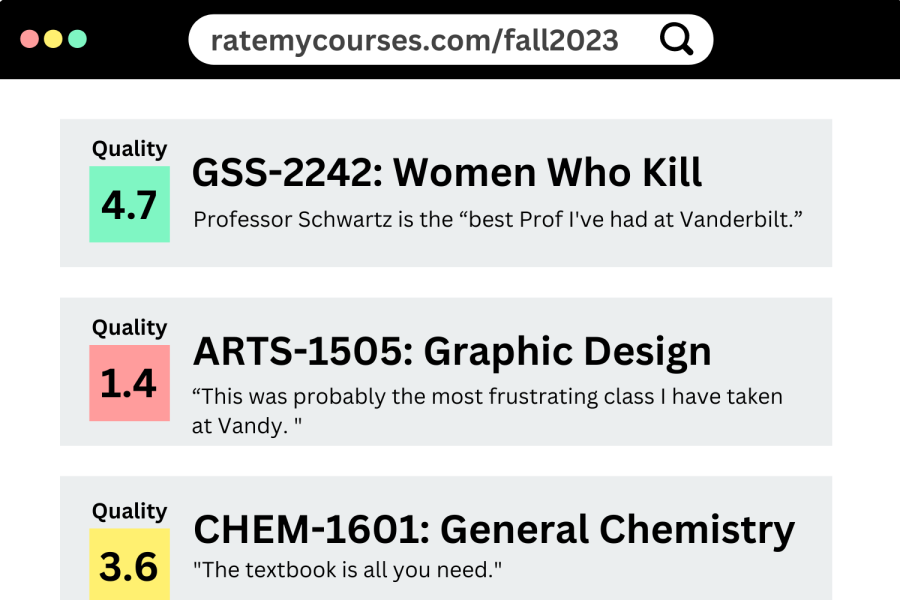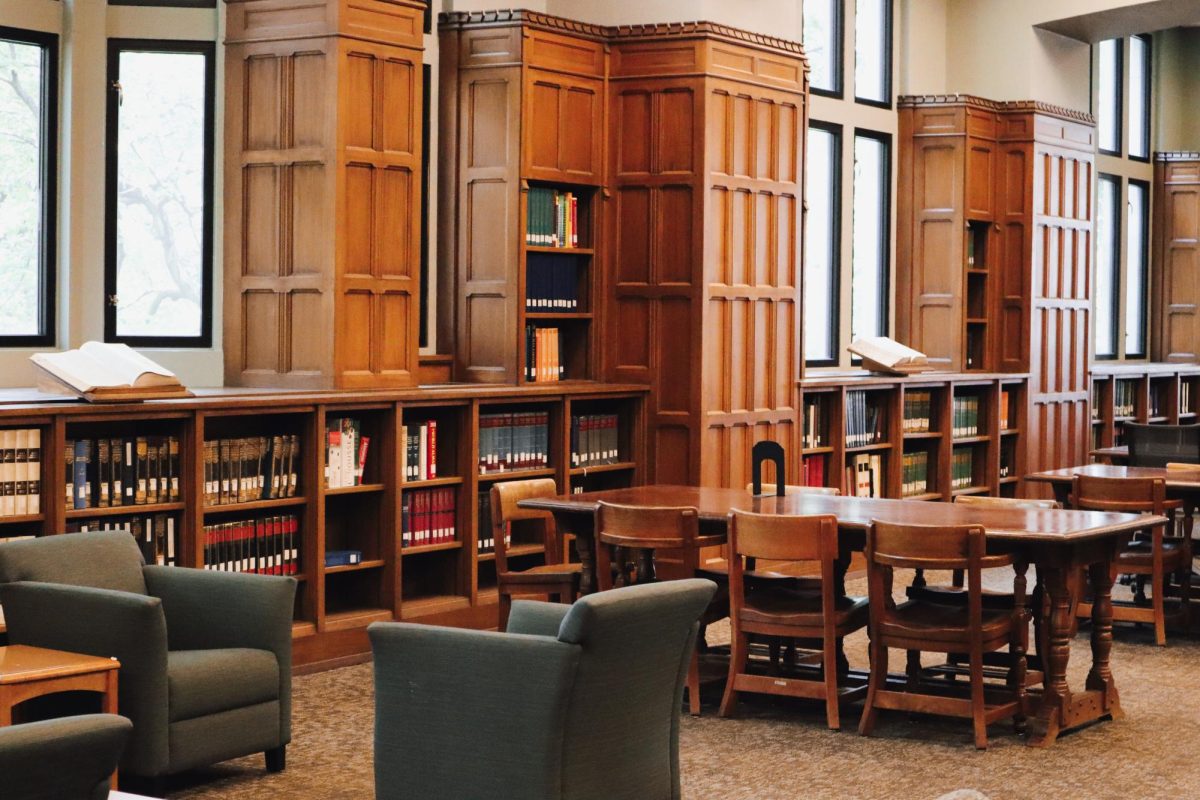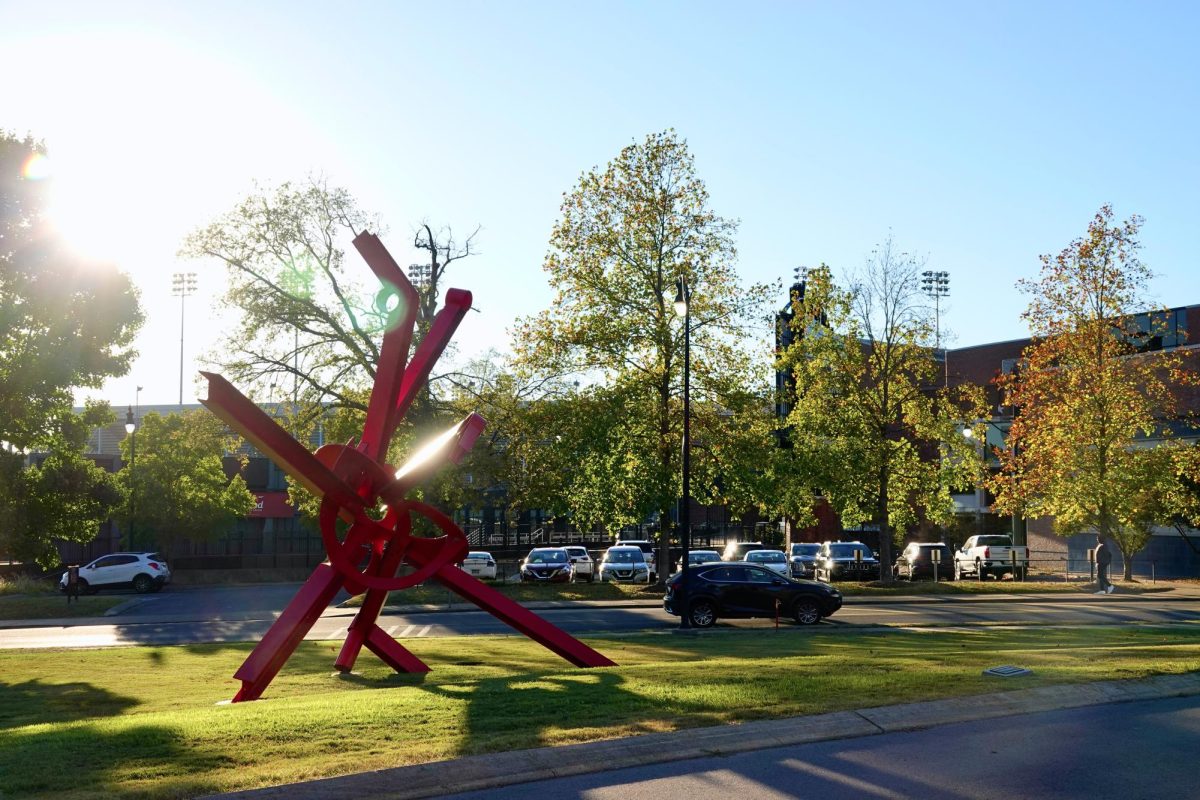Two pilot classes are being offered in Spring 2023 as part of a broader initiative by the College of Arts and Science to restructure the AXLE curriculum. Professor Paul Stob’s “Being Human, Becoming Citizens” and professor Michael Bess’s “Science, Technology, Values” courses will serve as blueprints for potential future common courses for all A&S first-year students.
Students in the College Scholars Program had the opportunity to enroll in these classes this semester, which were labeled as honors seminars. Thirteen students enrolled in Stob’s course and twelve in Bess’s. Both have first-year students in them. According to their syllabi, the two classes confront students with life’s biggest questions, such as “meaning of existence and human flourishing” and “relationship between technoscience and ethics.”
According to Professor Sarah Igo, A&S Dean of Strategic Initiatives and Chair of the curriculum project’s Steering Committee, A&S plans to offer 20 sections of the mandatory common classes for incoming A&S first-years in Fall 2023. She added that the new curriculum, which includes the common classes and other new requirements, could be fully implemented as early as Fall 2024 if the proposal passes a faculty vote this spring. She also noted that the ability to “opt-in” to this new curriculum for upperclassmen in A&S is currently an “unsettled question” due to administrative complications.
Igo said the A&S Dean’s Office has pledged to support additional hiring as needed to staff the new courses. Igo also noted the great deal of faculty interest in teaching the proposed core.
Course goals
Igo said the common classes taught by professors from different departments within A&S would introduce first-year students to the depth and breadth of a liberal arts education and provide unique opportunities for shared conversations, questions and debates across the entire first-year cohort. Compared with Vanderbilt Visions, another first-year student social experience, the common classes will be more intellectual, according to Igo.
“We hope students through these first-year courses will dig into the biggest questions we confront as thinkers and scholars,” Igo said. “It’s an attempt to broaden students’ possibilities as they begin their A&S careers, and maybe to slow down their rush to decide on a particular major or path.” She added, “Having readings and themes in common will allow us to plan co-curricular programs — art exhibits, play readings, visiting speakers — that pick up on those same themes.”
Bess, who experienced this kind of common class experience when he was an undergraduate at Reed College, echoed Igo’s statement.
“It was an intellectual awakening,” Bess said. “You could run into anybody on campus, and the conversations would take off since we were all grappling with the same problems.”
Igo said the two courses seemed to be the right amount to the Curriculum Committee, rather than being a burden.
“It’s our responsibility as A&S to create a little bit of structure that gives students a map to the intellectual world of the university but does not limit them from taking classes that they want,” Igo said.
Sophomore Augustus Boettcher said he believes the common classes will allow students to identify the meaning and value of a college education after talking with Bess about the pilot classes for his HIST 3000W class project.
“It’s not going to be a burden because the classes allow students to explore what they want to make out of the college education,” Boettcher said. “Even for students who know exactly what they want, to have two courses that everybody takes on campus is interesting.”
Course content and structure
Survey results obtained by The Hustler from the Curriculum Committee showed that 86% of the students who are in the pilot classes indicated that “a majority of first-year students would benefit from the course,” and 63% indicated that “their discussions from class carry over into non-classroom settings.”
“I definitely think the class would be beneficial for first-year students,” first-year Aneesh Batchu, who is in “Science, Technology, Values,” said. “Reading, researching and discussing concepts in the readings made me a more well rounded person in fields that I might not have otherwise explored.”
Stob said the courses’ diverse readings in terms of era, culture and authors’ identity serve as a “springboard” to debate larger issues and questions. Bess and Stob both acknowledged the tradeoffs in choosing books’ excerpts over complete books — such as Nicomachean Ethics, Tao Te Ching and The Souls of Black Folks — but emphasized the broader perspectives able to be included through this method.
Senior Jacob Smith, a student in Bess’s class, expressed appreciation for the readings and Bess’s style of teaching.
“Professor Bess has done a good job of incorporating diverse voices,” Smith said. “The readings have always been thought-provoking.”
Junior Tayo Fasan, also a student in Bess’s class, shared topics she believes should be added to the curriculum.
“The class could include more voices, especially more contemporary voices,” Fasan said. “Scholars who are dealing explicitly with race, gender and nationality would be a good addition, too.”
Stob acknowledged Fasan’s concerns by saying that the frameworks of these classes would change regularly based on student and faculty evaluations.
“We are always going to be asking students and faculty: What are we missing?” Stob said. “The syllabus that we developed for this common course will never be finished.”
Other proposed changes to AXLE
Besides the common courses, the committee is proposing that all first-year students under the new curriculum take two interdisciplinary or “integrative” core electives in areas such as “art and justice” and “numbers and narrative.”
“These electives will showcase exciting topics that help students explore and understand the different ways of thinking within all of our disciplines,” Igo said.
The remaining general education requirements will be organized through “capacities” the committee thinks students should develop, like ethical engagement and thinking about complex systems. Classes will be able to simultaneously satisfy more than one of these categories, unlike the current AXLE system.
“We want these foundational classes to help students genuinely reflect on their education, integrate what they are learning in different kinds of courses and try out a variety of academic paths,” Igo said. “We don’t think it’s desirable for students to think of the liberal arts requirement as a check-off list that is disconnected from the rest of their education or interests.”
Igo said these measures will reduce the number of hours A&S students spend on their liberal arts core from 42-45 hours to 30-36 hours.
“That’s a pretty big gain in terms of flexibility,” Igo said. “Our hope is that the proposed reforms will add up to a much more dynamic and intentional way of exploring the curriculum in one’s first years of study at Vanderbilt.”
Chandler Quaile, a junior involved in the student advisory group for the Curriculum Committee, praised Igo’s efforts to listen to students’ opinions.
“Dr. Sarah Igo is absolutely fantastic. She takes students’ concerns, faculty’s concerns [and] admin’s concerns and produces this amazing curriculum,” Quaile said.
The Future of the A&S Curriculum Committee has held regular meetings since January 2022 with students, including the VSG Academic Affairs Committee, the A&S Undergraduate Advisory Board and an ad hoc student advisory committee on the curriculum. Igo said additional details about student information sessions for drop-in questions and suggestions can be found on the A&S website.











